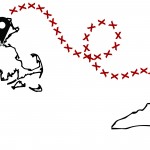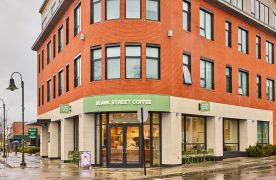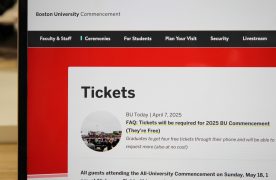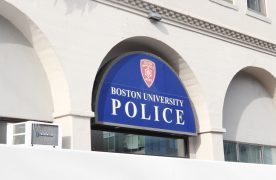Transportation for Massachusetts, a statewide coalition that works for affordable and safe transportation, released a financial report Thursday analyzing the progress of transportation funding since the passage of the Massachusetts Transportation Finance Act in 2013.
The Transportation Finance Act of 2013 was passed by the Massachusetts legislature in an effort to address the funding issues that the state’s transportation systems have continually faced. This is the second progress report to be released since the 2013 decision.
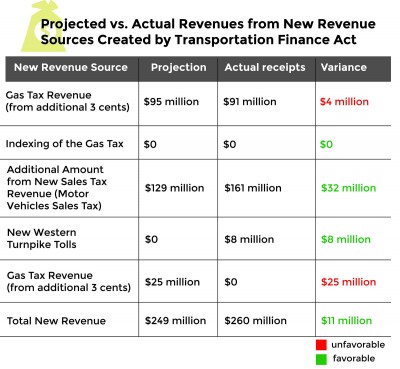
Rafael Mares, senior attorney at the Conservation Law Foundation , compiled the report, titled “Keeping on Track,” with Transportation for Massachusetts, the Massachusetts Department of Transportation and the Massachusetts Bay Transportation Authority.
Mares likened the report on the transportation system to a “preventative health checkup” for a medical patient, as it addresses the problems and successes that the transit system has faced.
The report compared predicted revenues and costs with actual revenues and costs from the 2014 fiscal year. The actual numbers fell $41 million short of projection, which is “a small difference for a budget over $2 billion,” the report stated.
The report concluded that the transportation system’s “revenue and cost projections have been more or less on target, with a few positive and negative exceptions.”
In the 2014 fiscal year, the transportation system faced a variety of issues with revenue and costs. For example, the Expanded Gaming Act was signed into law with a projected revenue of $25 million. However, the implementation was delayed, and as a result, the transportation system did not see any of this revenue in 2014.
The report also revealed that the Massachusetts transportation system spent $134 million, versus the $44 million the Massachusetts Joint Ways and Means Committee projected for snow and ice removal.
However, the MBTA saw an increase in ridership that brought in $31 million more than originally projected, and the motor vehicle sales tax brought in $32 million more than projected.
“Over the past year, Massachusetts got lucky, and the funding gap was narrowed by a boost in MBTA fare revenues and motor vehicle sales tax. Astronomical snow and ice removal costs and the loss of anticipated funds from indexing the gas tax will result in a much wider gap,” Kirstie Pecci, staff attorney at MASSPIRG and co-author of the report, said in a Tuesday press release.
Mares said the issues that the transportation system has faced recently are “not a result of mismanagement.”
Several residents said they have had issues in the past several weeks with transportation as they try to navigate the city through the record-breaking snowfall.
Julie Jung, 23, of Brighton, said the public transportation system is old and needs to be replaced to run properly.
“In my hometown, there is a big snow every year, but the T in my hometown does not just stop,” she said. “The T system is really old and a really good way to improve the T station is to buy some new trains.”
Richard Taffe, 66, of Allston, said the transportation system is flawed because it has not been updated in a very long time.
“The transportation system, under the circumstances is wanton,” he said. “It’s not what we need at this moment, but because of its lack of maintenance over two decades, that is expected.”
Alice Winkler, 29, of Brighton, said she has had some problems with MBTA service, she felt it was understandable for the transportation system to be experiencing service issues in light of the extreme weather.
“I tried to take the [Green Line] B line on Friday and the 57 [buses] ’s all passed me and stuff, so that was unfortunate,” she said. “It’s an extraordinary situation as well, so you can’t get too upset about it.”




